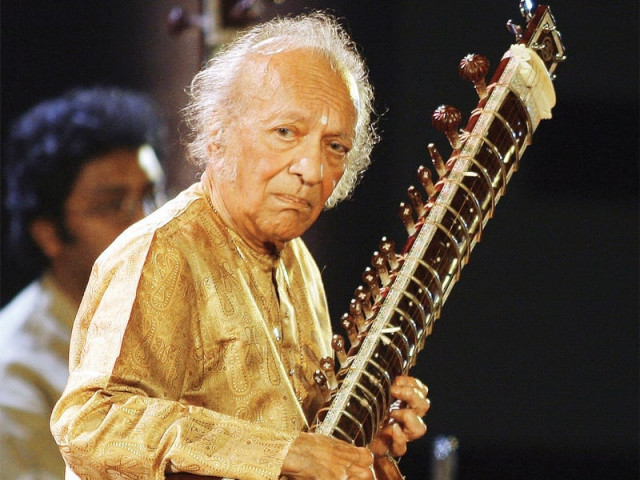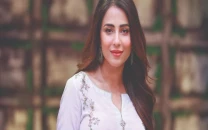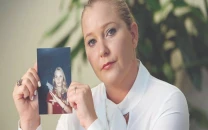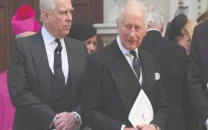‘The godfather of world music’, Ravi Shankar passes away
Indian sitar player passes away in the US at the age of 92.

In the 1980s, a concert by Indian sitar player Ravi Shankar had got top billing at the Victoria and Albert Hall in London. The concert hall was packed to capacity and there was thunderous applause as Shankar walked in, sat down and began to tune the tanpura and tabla.
Plink, plink went the tanpura. Applause followed. Tap tap, went the tabla. More applause.
Finally, Shankar leaned towards the microphone and, in his accented Bengali English, said: “If you like the tuning of my instruments so much, I wonder what you will do when I start playing!” A low ripple of laughter went through the darkened hall.
This was the magic of India’s best known classical musicians, who died on Wednesday in the US at the age of 92. Saddened by the news, India’s Prime Minister Manmohan Singh said India had lost a “national treasure” and tearful tributes were paid to a man who was not just India’s but South Asia’s bridge to the West.
Born in Varanasi in Northern India on April 7, 1920, Shankar’s high-caste Bengali family named him Robindra Shankar Chowdhury. At age 10, he toured throughout Europe with his brother Uday Shankar’s dance troupe. When he returned, Shankar began his training with Ustad Allauddin Khan of Maihar from 1938 to 1944. It was during this time that he married Khan’s daughter, Annapurna Devi.
As India and Pakistan separated to become two nations, he started working as a music director for All India Radio (AIR) in New Delhi and recorded music for DVD retailer HMV from 1949 to 1956.
Recognising that the British might have left the subcontinent but still deeply appreciated India’s musical legacy, he quit his underpaid job and began to focus on foreign tours. Incorporating South Indian Carnatic music in smaller concerts, Shankar toured the United Kingdom, Germany, and the United States. In 1958, he was one of the musicians who participated in the 10th anniversary celebrations of the United Nations and Unesco music festival at Paris. In 1962, Shankar established the Kinnara School of Music in Mumbai and then later opened a branch in Los Angeles, California in 1967.
This was the time The Beatles had become a rage in the UK, and the hippy movement was at its peak. Britain was reacting strongly to materialism and was deeply influenced by South Asian mysticism. George Harrison sought spiritual inspiration in India and came into contact with Shankar. Together they collaborated in two record albums, Shankar Family & Friends and Festival of India, both composed by Shankar. The Beatles called him “The Godfather of World Music”.
By then, the US – with its own demons in Vietnam chasing a large part of the national consciousness – had recognised the great sitar player. In 1971, Shankar participated in the charity concert for Bangladesh to raise money for refugees from East Pakistan, which became one of the best-selling concert albums. He received his second Grammy Award for his composition. He suffered his first heart attack in Chicago in 1974, and he resolved to take it easy.
In 1976, he founded the Research Institute for Music and Performing Arts in Varanasi. From 1986 to 1992, Shankar served as a parliament member nominated by the Indian Prime Minister Rajiv Gandhi. He composed the music for the popular patriotic song of India Sare Jahan Se Acha originally written by poet Allama Iqbal. Although he performed at many international destinations, he kept travelling back to the subcontinent, keeping the East-West conversation alive. He introduced new ragas such as Tilak Shyam, Nat Bhairav, and Bairagi and contributed to a new style, jugalbandi.
He authored violin-sitar compositions for Yehudi Menuhin and himself, music for flute virtuoso Jean Pierre Rampal, music for Hosan Yamamoto, master of the Shakuhachi and Musumi Miyashita – Koto virtuoso, and has collaborated with Phillip Glass (Passages).
Personal life
Shankar and his first wife Annapurna separated in the ‘60s but had a son together, Shubhendra Shankar who died at the age of 50. Shankar married his second wife Sukayna Rajan and they had a daughter Anoushka in 1981, who is now an accomplished sitar player.
Shankar also had two unsettled relationships, including one with an American concert producer Sue Jones, who he had a daughter with in 1979, singer Norah Jones.
Published in The Express Tribune, December 13th, 2012.
Like Life & Style on Facebook and follow at @ETLifeandStyle for the latest in fashion, gossip, entertainment



















COMMENTS
Comments are moderated and generally will be posted if they are on-topic and not abusive.
For more information, please see our Comments FAQ